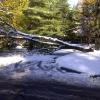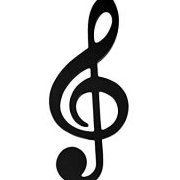All Activity
- Past hour
-
July 2025 Discussion-OBS - seasonable summer variability
anthonymm replied to wdrag's topic in New York City Metro
It wouldn't surprise me if the average low for the city this july is about 76. Crazy -
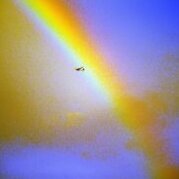
July 2025 Discussion-OBS - seasonable summer variability
LibertyBell replied to wdrag's topic in New York City Metro
But the average high is up there too isn't it-- I think you posted a table showing it's the second hottest (going by high temperatures) right behind 2010? And that the July mean temperature at JFK is very close to 80.0? -

July 2025 Discussion-OBS - seasonable summer variability
bluewave replied to wdrag's topic in New York City Metro
The increasing dew points lead to the mimimums rising faster than the maximums at places like JFK. This has been the warmest July for the maximum average heat index and low temperature.The maximum average temperature at JFK has been lower this July than back in 2010 and 2011. But this July feels warmer due to the higher dew points than 2010. -

July 2025 Discussion-OBS - seasonable summer variability
Sundog replied to wdrag's topic in New York City Metro
The urban jungle used to average lows in the upper 60s in July. Up until the 1981-2010 averages it did. Even in rural areas, if your dewpoints are high you're not cooling off either. Everyone's warming up at night. The farmland went from 65 to 68 and the city went from 68 to 71, or something like that. So yea rural still averages in the 60s but not as low into the 60s. -

July 2025 Discussion-OBS - seasonable summer variability
LibertyBell replied to wdrag's topic in New York City Metro
thanks Tony, out of those I think 1993, 1999, 1983, 2010 and 1991 all had at or above 30 90+ degree days, were there any others? -
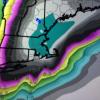
July 2025 Obs/Disco ... possible historic month for heat
40/70 Benchmark replied to Typhoon Tip's topic in New England
Risky, but you dew you -
July 2025 Discussion-OBS - seasonable summer variability
LoboLeader1 replied to wdrag's topic in New York City Metro
95F/65 -
July 2025 Obs/Disco ... possible historic month for heat
ma blizzard replied to Typhoon Tip's topic in New England
extended GFS setting up to torch -
July 2025 Discussion-OBS - seasonable summer variability
wdrag replied to wdrag's topic in New York City Metro
Heavy showers organizing E PA. SPC HREF seems to have spot 7" MAX potential by Thu evening. Waiting completion of the HREF and then probably starting a thread for iso FF, detours, travel delays...sometime between 4-8P. -

July 2025 Discussion-OBS - seasonable summer variability
LibertyBell replied to wdrag's topic in New York City Metro
Yes it's really hard to do a top 5 you have to weigh them by some system (so you end up having to do math anyway haha). Basically I'm looking for years that have at least 30 90+ degree days (there's not that many of them), at least 5 95+ degree days and at least 1 100+ degree day. For JFK only 2010 makes that list. For NYC it's more than that but I'm not sure it's 5. I know for sure 2010, 1993, 1991 make this list for NYC (and maybe 1999 too?) but I don't know which others do. 1983 did not get to 100 in NYC (but 99 in September and 100 twice at JFK) I'd still put 1983 near the top for NYC because it held the 90 degree day record until 1991 and 1993. 1953 had four 100+ degree days at NYC but I don't think it had 30 90+ degree days (although it had two of our longest heatwaves ever. 1966 also had four 100+ degree days at NYC (and three in a row at JFK) but I'm not sure it had the 30 90+ degree days I'm looking for. 1955 holds the record for NYC with 16 95+ days but I'm not sure it hit 100 in 1955 at NYC. It's possible 1949 also belongs on this list with 5 99+ degree days at NYC (2 of which were 100+) and 8 100+ degree days at EWR but I don't know the number of 90+ degree days in that year. -
The only thing is that woulf make us a buyer--and we aren't exactly in a position to be that for this trade deadline. Now I could see a scenario where we package some of the prospects we get this year to buy something in the off-season.
-
July 2025 Discussion-OBS - seasonable summer variability
SACRUS replied to wdrag's topic in New York City Metro
Wide view starting to see semblance of some popup storms in EPA and the clouds -

July 2025 Discussion-OBS - seasonable summer variability
LibertyBell replied to wdrag's topic in New York City Metro
there's too many summers to pick from for me to do a top 5, so I'll just list my top 5 ideal summers. 1. 2010 2. 1993 3. 1999 4. 1983 5. 1966 -
July 2025 Discussion-OBS - seasonable summer variability
SACRUS replied to wdrag's topic in New York City Metro
Depends on the metric overall summer temps (avg) , number of 90 degree days, number of 95 degree days, number of 100 degree days or higher. -
July 2025 Discussion-OBS - seasonable summer variability
SACRUS replied to wdrag's topic in New York City Metro
NYC 95 degree or higher saeson leaders Year Rank Days >= 95 °F 1955 1 16 1988 2 14 2002 3 13 1993 3 13 1999 5 12 1953 5 12 1949 7 11 1944 7 11 1983 9 10 1980 9 10 1966 9 10 2005 12 9 1952 12 9 2010 14 8 1991 14 8 -
Followup: Unlike the 0Z, the 12Z UKMET has no TD.
-
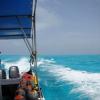
E PA/NJ/DE Summer 2025 Obs/Discussion
Violentweatherfan replied to Hurricane Agnes's topic in Philadelphia Region
Someone in the NYC forum said the NAM is amping up precipitation for Friday too -

July 2025 Discussion-OBS - seasonable summer variability
LibertyBell replied to wdrag's topic in New York City Metro
For NYC itself I'd say the top 5 summers for heat (ignoring sensor issues) were: 1. 2010 2. 1993 3. 1983 4. 1966 5. 1953 I really wanted to include 1991 and 1955 and 1949 and 1999, these should go in the next 5. -

July 2025 Discussion-OBS - seasonable summer variability
LibertyBell replied to wdrag's topic in New York City Metro
I mean, you have to use math formulas. Yes you can measure dew point directly but to actually measure the total heat content you have to combine that with temperature using formulas. For example: a temperature of 102 degrees with a dew point of 66 contains more heat than a temperature of 99 degrees with the same 66 dew point. BUT what about a temperature of 99 degrees with a dew point of 68? OR a temperature of 102 with a 64 dew point? Do you see what I mean-- there isn't any direct measure of heat, you must solve these using math formulas. -

July 2025 Discussion-OBS - seasonable summer variability
bluewave replied to wdrag's topic in New York City Metro
For the urban areas it has been the lack of 50s during July which used to be more common. For the rural spots outside the UHI areas it has been a lack of July lows in the 40s which used to occur more regularly. Since the low temperatures have been steadily warming in both parts of the region. -

July 2025 Discussion-OBS - seasonable summer variability
LibertyBell replied to wdrag's topic in New York City Metro
Yes, it's true. But temperature is what we can measure directly. You need to work with some math formulas to combine moistness with temperature to measure heat. the official NWS definition of *hot summer* ranks them by number of 90 degree highs and does not factor in moisture. -
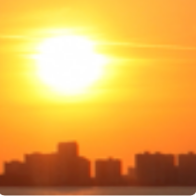
July 2025 Discussion-OBS - seasonable summer variability
forkyfork replied to wdrag's topic in New York City Metro
we do measure it. dewpoint, theta e, etc

